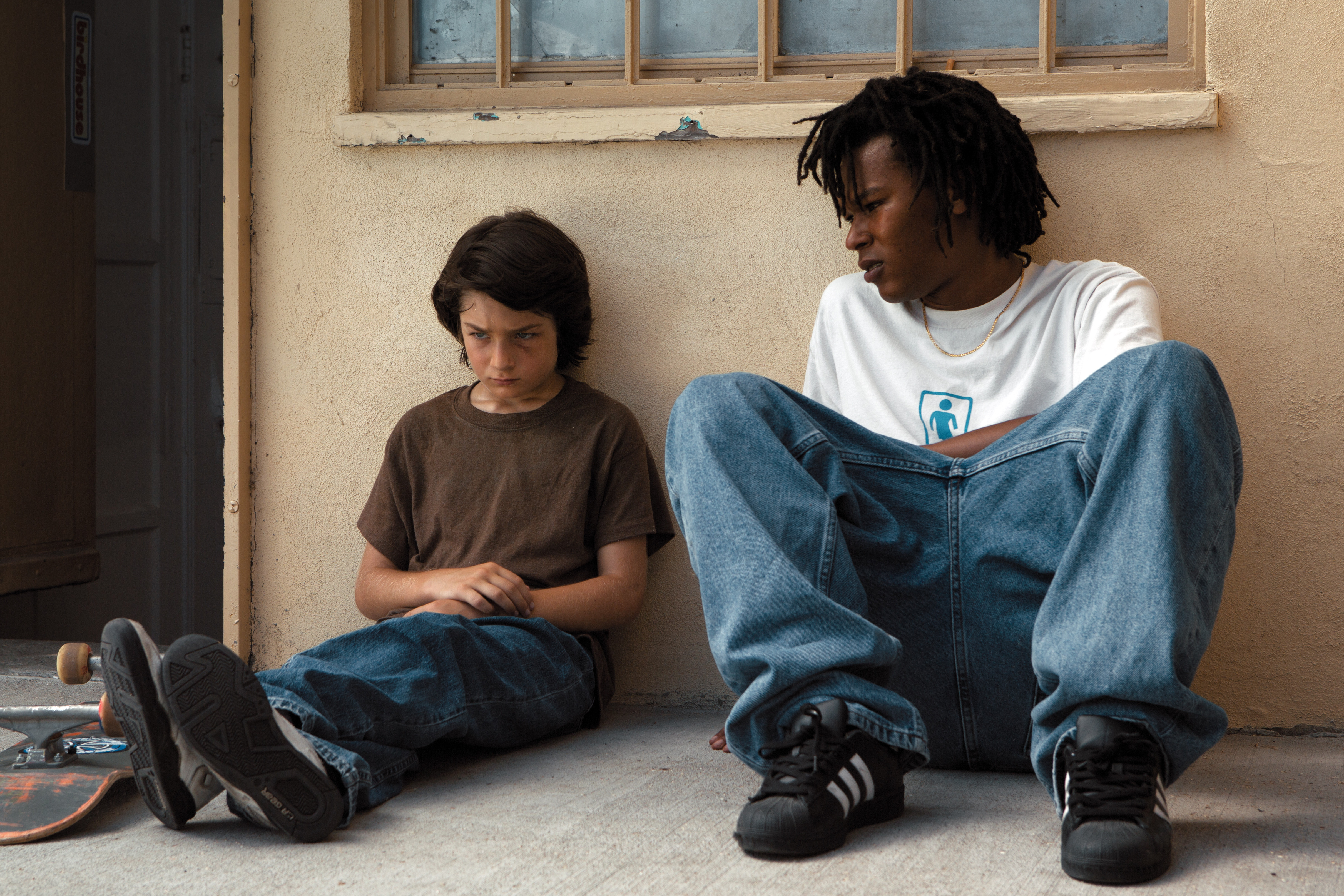What does it feel like to think that you don’t belong? It can be isolating, confusing and above all else frightening. Most people face this problem at least once in their adolescence, and a key part of growing up is facing such self-realising issues and getting to grips with how to solve them as you build independence. Like most other coming-of-age movies, Mid90s tackles these issues head on, and does so in both a casual and compassionate manner.
In his directorial debut, Jonah Hill had expectations set high when he went public that he would be tackling the screen from behind the camera in what was clearly a passion project for him. Set in Los Angeles in, you guessed it, the mid-90s, there is clearly a lot of Hill’s own teenage years littered throughout the film, and this is done so with great success. The setting of the film has an incredibly realistic feel to it, to the point where it feels as if you are watching the lives of the character through a lens, playing out in real time. This is largely due to the brilliant acting from the cast across the board, with youngster Sunny Suljic (Stevie) holding up very impressively in the hardened environment surrounding him, having to act out some sequences unimaginable to most twelve-year-olds. Furthermore, the film was shot entirely on 16mm film, giving it the look and feel that it was really produced in the era that it is set in. These aspects combine to give the film a strong emotional depth for its characters, which is pivotal in a film which relies heavily on character development and more loosely on plot. The film is also surprisingly funny, with many different conversational soundbites between the main group of boys which feel very true to real life and unforced; “Can black people get sunburnt?” “You a dumb*ss”. The film has such a genuine feel to it, and the excellent dialogue and direction that Jonah Hill brings is what makes it work so well, with the camerawork providing a very personal tone at times and a very distant tone at others, depending on the context of the scene. All of this is supported by an excellent soundtrack which almost always introduces each scene and sets the mood perfectly.
Whilst the film creates great character depth in some characters, at times it seems that this is at the expense of others. Throughout there is a parallel between Stevie’s home life and social life, and whilst the characters in his social life get lots of screen time and attention, Stevie’s mother and brother have much less of this. One of the film’s strong themes is Stevie’s family struggles and the emotional weight that it carries, and whilst this is addressed, it is hard to build familiarity and emotional attachment to his mother and brother, with little back story provided to them. Whilst this doesn’t hinder the film greatly, it leaves questions about how Stevie has ended up in the position he is in. As well as this, there are also some loose ends regarding the relationships between some characters by the end of the film, which seems to leave some questions unanswered which the first few scenes imply a setup for. Ultimately, some characters end the film in a frustrating position, where just a little more information and resolution was required. One other little nit-pick is that with a particular scene at a house party, which seems alarmingly out of place and inappropriate. Without spoiling it (although you will definitely know it when you see it), there is a sequence involving Stevie which is very unsuitable to both the character and the actor. All I could think whilst watching was “how on earth did this make the cut?”.
Overall, Mid90s delivers nostalgia, heart and emotion, and provides the viewer with a satisfying coming-of-age tale that is both true to its time, and yet timeless. Strong emotional depth is built around the real-as-life characters throughout which keeps you invested in each scene as you see how they unfold further. This is just the beginning for Jonah Hill, and I cannot wait to see in which direction he will venture out into next.
Image Credit: Tobin Yelland / A24

